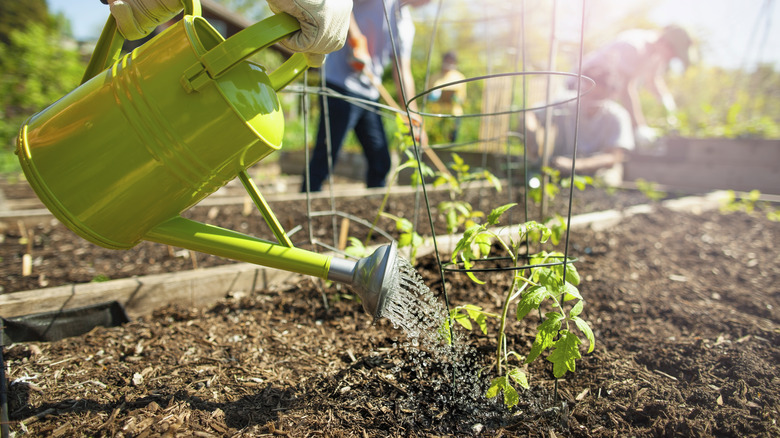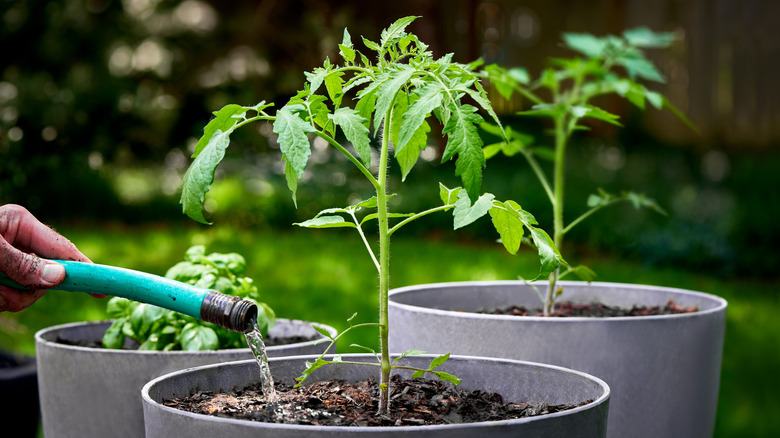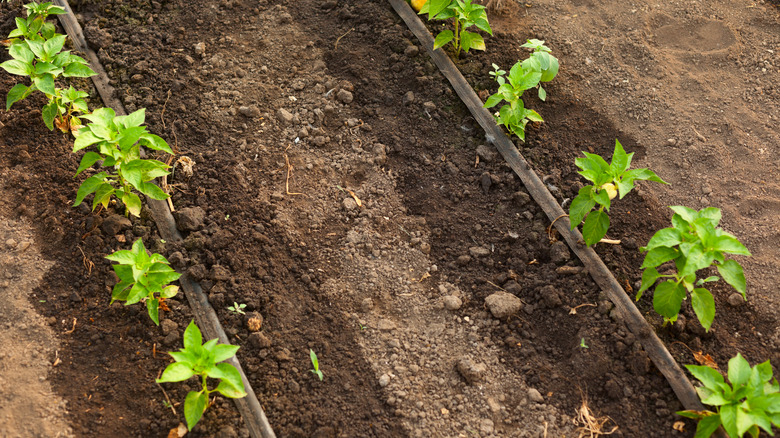The Best Watering Technique To Avoid Garden Pests & To Give Your Plants A Healthy Boost
Water sustains all of life on earth, so your garden must get enough of it. However, not only is providing enough water important, but the technique you use when giving your plants a drink is also crucial. How you water your garden can greatly affect your crops' health, as doing it wrong can result in diseases, pests, and even the occasional case of death. Many gardeners typically water their plants overhead with a watering can, a garden hose spray nozzle, or a sprinkler, which soaks all the leaves. Unfortunately, this is a good way to attract pests and make your plants sick. Instead, the best way to water your garden is from the base with deep drinks, which will help your plants deter pests and encourage them to grow deep roots.
Watering your plants at the base can be done in a few ways. You could use a gardening hose on a low pressure setting, professionally install or DIY a home garden watering system like a drip irrigation line, or wield your trusty watering can. No matter what method you choose, this technique will avoid dampening the leaves, which can reduce the chances of diseases and pests. When you give your plants deep drinks at the soil, you're also providing them with a health boost by bolstering them into the ground to prevent wind damage and wilting.
How watering at the base prevents pests
Overhead watering is simple, seems efficient, and doesn't require you to break your back from bending over to water every plant. However, it's not the best method because it makes all the leaves wet, which can lead to the spread of diseases. Any plant parts that remain wet for a time increase the chances of fungal diseases, since their spores require water to infect the plant. Further, once your plant is diseased, pests are sure to arrive and cause more destruction. This is because some pests like aphids, whiteflies, and borers are attracted to diseased crops since they're easier to invade in their weakened state. Watering at the base can help your plants stay healthy, which will also keep pests away.
Additionally, just as you can fight illness by staying hydrated, plants are also better at warding off pests when they receive enough water. Giving crops a shallow sip of water isn't enough; it will encourage shallow roots, which can lead to plant stress when they dry out, and a stressed plant is more likely to face pest pressures. If you also get the leaves wet, this is a recipe for bugs, and lots of them. Instead, give your garden a deep drink at the base, which will keep your crops hydrated and therefore give them a better chance at being able to fight off harmful insects.
Deep drinks give your plants a healthy boost
Can your plants really get a health boost just by how you water them? It might sound far-fetched, but it all comes down to the depth of the roots. It's better to give your plants a deep drink every few days than a shallow drink each day, as this will encourage roots to spread deeper. Roots go where the water is, so if the water is always at the surface of the soil, that's where the roots will stay. Shallow roots can lead to uprooted plants during windy conditions, since they don't have a sturdy anchor. Further, if you usually give your plants a shallow drink every day but forget to water for a few days, your crops might wilt or become susceptible to diseases and pests. On the other hand, if you water deeply every few days, the roots will grow downward to reach the water, which will keep your plants healthy and firmly in the ground.
How often you should water your garden depends on your type of soil, the climate where you live, and your recent weather conditions. For instance, gardeners in northern states that receive plenty of rain may go up to a week without watering, while those in arid southwestern states may only be able to skip a day or two. Monitor the top 6 inches of the soil closely — once this portion of the soil feels dry, it's time to give your plants a drink.


